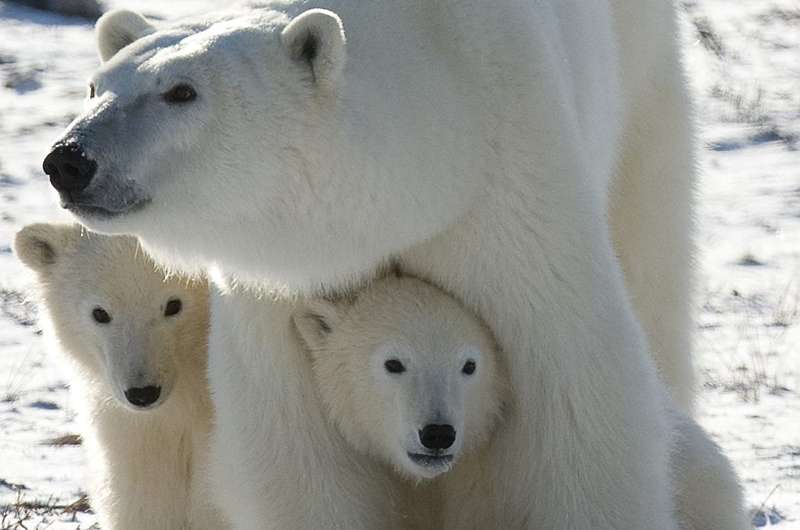Pollutants in the Arctic environment are threatening polar bear health

A new analysis has found that although the risk of persistent organic pollutants (POPs) in the Arctic environment is low for seals, it is 2 orders of magnitude higher than the safety threshold for adult polar bears and even more (3 orders of magnitude above the threshold) for bear cubs fed with contaminated milk.
Relative to the 1980s, a decrease in risk from legacy POPs is evident for bear cubs, mainly because of international control measures; however, the composition of POPs substantially changes, and the contribution of new POPs (particularly perfluorooctane sulfonate) is increasing.
"This work is the first attempt to quantify the overall risk of POPs for the Arctic ecosystem and to define a ranking in order to highlight the most dangerous chemicals in the mixture," said Sara Villa co-lead author of the Environmental Toxicology and Chemistry study.
"The results demonstrate that international control measures are effective at reducing the risk to ecosystems. Nevertheless it is fundamental to continuously implement the control of new and emerging contaminants," added co-lead author Marco Vighi.
More information: Environmental Toxicology and Chemistry, DOI: 10.1002/etc.3671
Journal information: Environmental Toxicology and Chemistry
Provided by Wiley

















